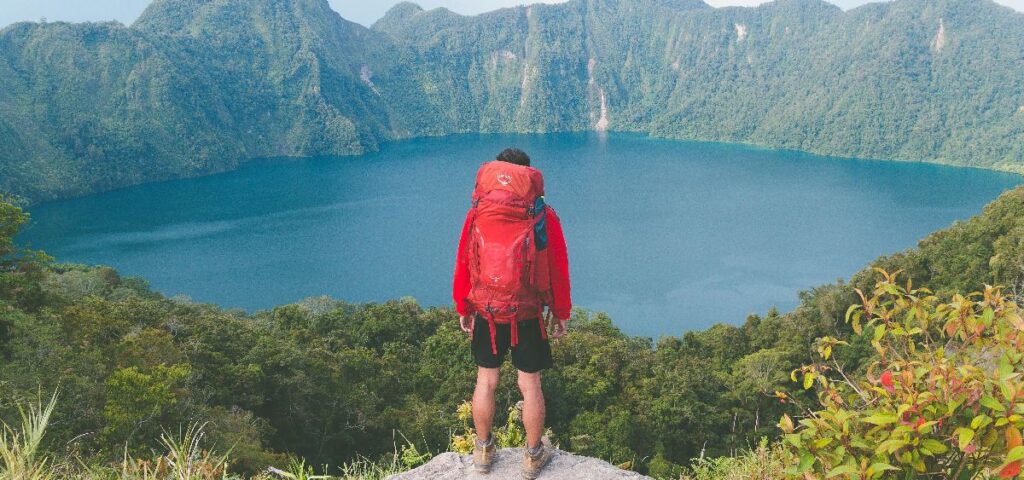The trend of eco-nomadic learning has dramatically influenced higher education in recent times, gaining particular traction among Gen Z college students. This innovative approach combines the thirst for knowledge with a deep commitment to environmental sustainability, reshaping the traditional boundaries of the classroom. As more students seek meaningful, real-world experiences that align with their values, eco-nomadic learning emerges as a compelling educational model.
The rise of eco-nomadic learning is a testament to the evolving priorities of today’s students. In an era where information is readily accessible, the appeal of experiencing education through travel—especially in a manner that respects and preserves our planet—has grown significantly. For those pondering over whether to buy essay from essayservice.com or embark on an educational journey that also conserves the environment, eco-nomadic learning offers a promising alternative.
The Essence of Eco-Nomadic Learning
A New Way to See the World
Eco-nomadic learning enables students to traverse the globe, absorbing knowledge not just from textbooks but from the very essence of the cultures, landscapes, and ecosystems they encounter. This form of education goes beyond the traditional study abroad programs by emphasizing sustainable travel practices, such as minimizing carbon footprints, engaging with local communities, and participating in conservation efforts. It’s an immersive experience that teaches respect for nature and cultural sensitivity, fostering a generation of environmentally conscious global citizens.
Sustainability at Its Core
For the Gen Z demographic, pursuing a sustainable future is considered an immediate necessity rather than a distant aspiration. Eco-nomadic learners take this to heart, choosing modes of transportation, accommodation, and consumption that reflect their commitment to the planet. From volunteering in reforestation projects to studying marine biology in the field, these students are at the forefront of combining environmental activism with their academic pursuits. They embody the principles of sustainability in every aspect of their travel, making eco-friendly decisions that contribute to preserving the environments they explore.
Learning Beyond the Classroom
The classroom walls dissolve as eco-nomadic students find themselves in settings that challenge and expand their understanding of the world. Whether it’s through conducting field research in the Amazon rainforest or participating in sustainable agriculture workshops in rural Asia, the experiential learning opportunities are boundless. Adopting a practical learning methodology not only enriches academic understanding but also cultivates a profound respect for the intricacies of environmental challenges worldwide. Through this method, students integrate theoretical concepts into tangible scenarios, acquiring critical skills and perspectives that surpass traditional textbook education.
Implementing Eco-Nomadic Practices
Choosing the Right Program
For students interested in eco-nomadic learning, selecting the right program is crucial. A growing number of higher education institutions are introducing courses and programs with a strong emphasis on environmental studies and sustainability, reflecting a broader educational shift. Researching and choosing programs that align with eco-nomadic principles can significantly impact the sustainability of one’s educational travel. It’s about finding a balance between academic rigor and environmental ethics, ensuring that travel experiences contribute positively to both personal growth and the well-being of the planet.
Embracing Sustainable Habits
Adopting eco-friendly habits is essential for aspiring eco-nomads. Practices such as minimizing waste, conserving water, and bolstering local economies exemplify the comprehensive strategies embraced for sustainability. By making conscious choices, students can ensure their educational journeys contribute positively to the planet’s health. These practices are not just limited to travel. They can extend into all areas of life, encouraging a lifestyle that prioritizes sustainability and mindfulness about the environmental impact of one’s actions.
Engaging with Local Communities
True eco-nomadic learning involves more than just observing. It requires active participation and engagement with local communities. This engagement allows students to gain unique insights into the challenges and solutions related to sustainability from different cultural perspectives, enriching their learning experience. By working alongside local populations, students can contribute to meaningful projects that address environmental concerns, fostering a sense of global solidarity and mutual respect for the earth’s diverse inhabitants and ecosystems.
The Future of Eco-Nomadic Learning
As eco-nomadic learning continues to gain momentum, it promises to significantly influence and transform the educational journeys of future generations. This innovative approach does more than just impart essential knowledge and skills aimed at tackling environmental challenges. It fosters a lifelong dedication to sustainable living. Through immersive experiences that bring students closer to nature, they forge a deep bond with the planet. This connection instills a strong sense of stewardship and a commitment to safeguarding the environment, ultimately steering society toward a path of sustainability and equity for everyone.
Conclusion
Eco-nomadic learning represents a transformative shift in how education and travel intersect. By placing a strong emphasis on sustainable practices, Gen Z college students are at the forefront of advocating for a more thoughtful and interconnected global community. The lessons learned through eco-nomadic experiences are those that resonate well beyond the confines of traditional education, preparing students not just for their careers but for a lifetime of meaningful global citizenship.
Author Bio
Nicole Hardy, a renowned journalist with expertise in education and the arts, has earned acclaim for her comprehensive and insightful reporting on performing arts education. With a career spanning over a decade, Hardy has established herself as a respected authority in this field. She is well-regarded for her in-depth analysis and engaging writing style. Hardy holds a Master’s degree in Journalism from the University of Arts, specializing in arts and culture journalism. Presently, she creates exceptional, student-oriented content for News.EssayHub.

